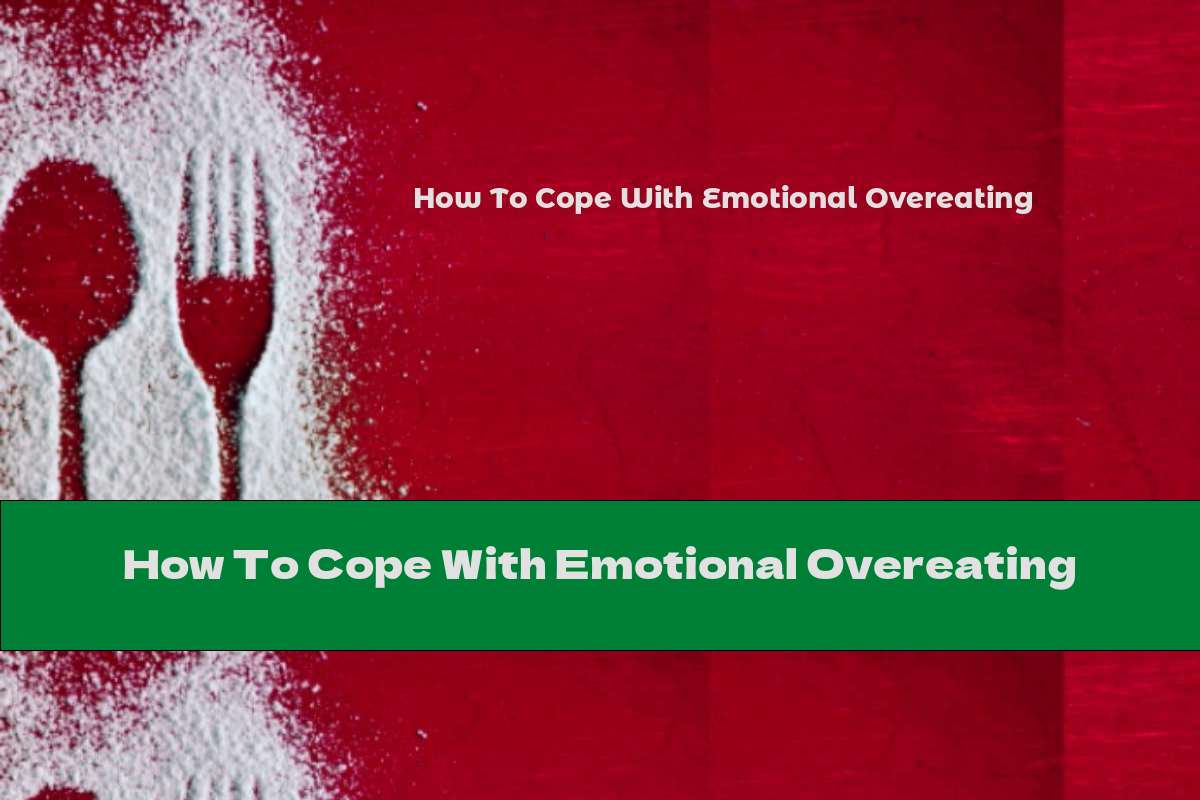How To Cope With Emotional Overeating
 Author: Dean Rouseberg
Time for reading: ~4
minutes
Last Updated:
February 17, 2026
Author: Dean Rouseberg
Time for reading: ~4
minutes
Last Updated:
February 17, 2026

Emotional or compulsive overeating is a problem that arises against the background of chronic anxieties and troubles. Jenny Miremadi, a nutritionist at the Mayo Clinic (Mayo Clinic), admits that because of the pandemic, emotional overeating is flourishing more than ever. For your attention, the main steps to overcome the problem of compulsive overeating.
Emotional or compulsive overeating is a problem that arises against the background of chronic anxieties and troubles. Expressed in the language of psychologists, this is a maladaptive strategy to overcome stress and irritability, during which more food is consumed than the body needs for normal functioning. As a result, excess weight appears and the overall psychological imbalance increases.
Jenny Miremadi, a nutritionist at the Mayo Clinic, admits that because of the pandemic, emotional overeating is more prevalent than ever. And what is even worse, the acquired habit is accompanied by harsh self-criticism, which makes it difficult to get rid of a harmful addiction.
"You can't start fighting the problem by feeling guilty and blaming yourself for giving in to weakness again," explains doctor Miremadi. - Realizing that emotional overeating has become a part of your life, you accept the body's signal that it's time to treat yourself in a new way. This is not a sign of weakness or lack of self-control, but a chance to learn to understand your body and recognize emotions . Agree, it is unfair to your own body to constantly demand-use-neglect-criticize, but instead regret love and care."
Overcoming emotional overeating takes time and understanding the psychological prerequisites of this habit. Success will not come immediately - get ready for a long struggle, but not with yourself, but with the stress trigger that launched the comforting strategy of overeating . Here are the main steps to overcome the problem of compulsive overeating .
Learn to distinguish between hunger and the urge to chew
Task #1 is to reconnect with the innate ability to recognize hunger by paying attention to real, not imaginary, emotion -based signals . You know very well that when you are hungry, the body gives clear signs: your stomach grumbles, appetizing images come to mind, you physically feel a lack of strength and energy. To get back in touch with your natural appetite , every time you feel the urge to eat, check your body for hunger . If there is no physical confirmation - wait, do not eat. Drink a glass of water, distract yourself, change activities. It may be difficult at first, but overcoming overeating is worth it.
Take care of a full-fledged diet according to the schedule
You should eat fresh and healthy foods that contain vitamins and nutrients. The insidiousness of stress is that the cortisol produced by an anxious body stimulates the appetite and contributes to the deposition of fat. As soon as you eat something tasty (fatty, sweet), the level of glucose in the blood rises, triggering the production of energy and improving mood. Hence the temptation to quickly snack on something carbohydrate, without waiting for a full lunch. An hour later, the desire to have a snack arises again, and so on in a circle. Neglecting a balanced diet according to the schedule, you accustom the body to dependence on fast carbohydrates, which sooner or later will lead to chronic overeating .
Related Articles
- Nutrition for Respiratory Health: Supporting Your Lungs with the Right Foods
- Boost Digestive Health with Buffer 500 - Benefits & Recipes
- Boost Your Health with Buffer 500: Benefits, Recipes, and More
- Nutrition and Libido: Enhance Your Sex Drive with the Right Foods
- Nutrition and Libido: Boost Your Sex Drive with Healthy Eating